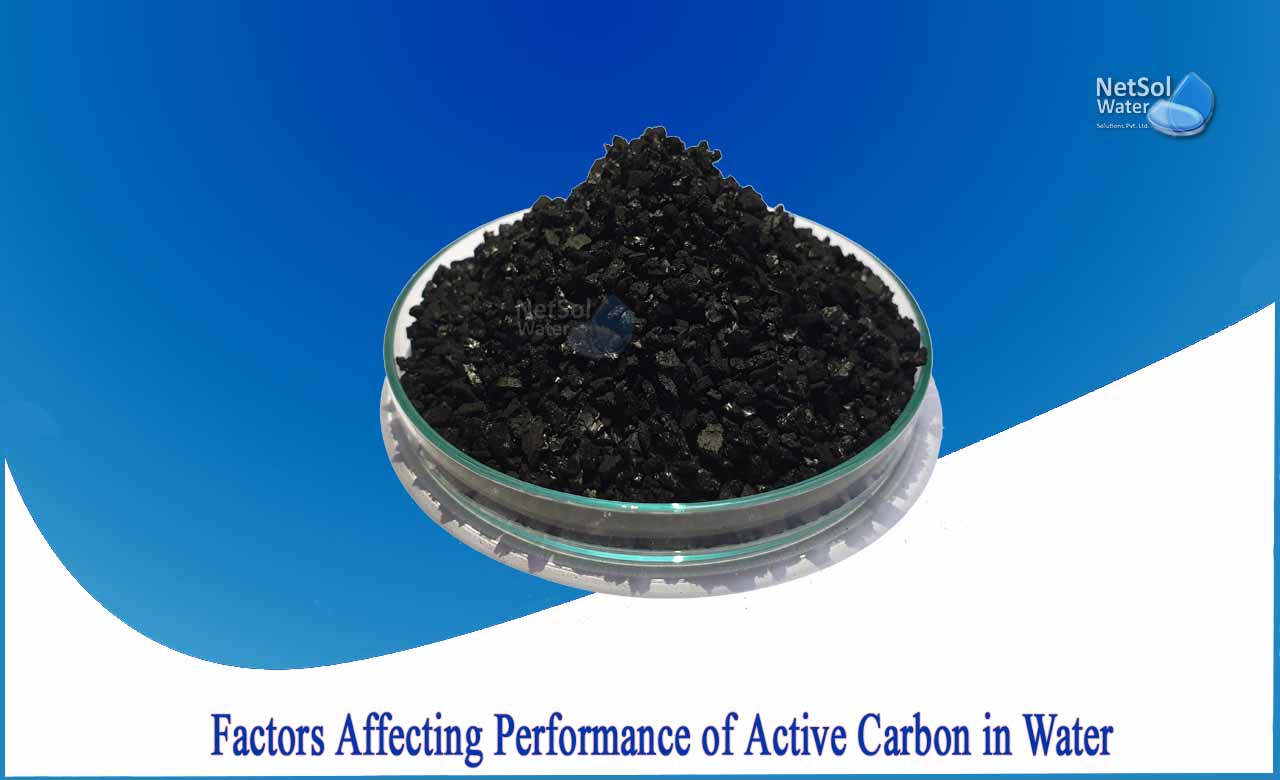What are factors affecting performance of active carbon in water?
Activated carbon filters are commonly used in the elimination of organic compounds and/or the extraction of free chlorine from water, making it appropriate for disposal or use in manufacturing operations. When organics, such as humic and fulvic acid, are eliminated from drinking water, chlorine in the water is prevented from chemically interacting with the acids and generating trihalomethanes, a family of recognized carcinogens.
As with any water treatment technology, activated carbon (AC) filtration is not responsible for eliminating every form of contamination. Sodium, bacteria, fluoride, and nitrates, for example, are not eliminated by AC filtering. Water softening is also impossible to do using AC filters. Furthermore, heavy elements like lead can only be removed using a specialised type of activated carbon water treatment, which is normally found only in household point-of-use filters.
The fact that activated carbon contributes nothing harmful to the treated water makes it a popular water treatment method. Raw materials such as coal, wood, nutshells, and petroleum are used to make most activated carbons.
Adsorption and catalytic reduction are the two main mechanisms by which activated carbon removes pollutants from water. Adsorption eliminates organic wastes, whereas catalytic reduction eliminates residual disinfectants.
Main activation methods: There are two main activation methods:
1: Steam Activation: Steam activation is done at temperatures ranging from 800 to 1000 degrees Celsius. An immediate Water-Gas reaction happens at these temperatures, gasifying the carbonised substance. The vapours are subsequently burned off with air, but the carbon is not burned. This method yields activated carbon that has been graded, screened, and dusted. Steam-activated carbon has a fine pore structure, making it perfect for adsorbing both liquid and vapour phase chemicals.
2: Chemical Activation: Chemical activation involves filling the carbon with a potent dehydrating agent, such as phosphoric acid (P2O5) paste or zinc chloride (ZnCl2).
To activate the carbon, the paste is heated to temperatures ranging from 500°C to 800°C. Chemical activation creates activated carbon with a porous structure that is better suited to adsorbing big molecules.
Factors affecting the performance of activated carbon are:
-pH: As the pH rises, the activity of organic elimination reduces. At a lower pH, most organic molecules become less soluble and more easily adsorbed. The carbon bed size should be increased by 20% for every pH unit above neutral, according to a rule of thumb.
-Molecular weight: The adsorption capacity of activated carbon increases as its molecular weight rises. However, the pores on the carbon's surface must be large enough to allow molecules to pass through. It is recommended that a mixture of low and high molecular weight molecules be employed, as well as species that are difficult to eliminate.
-Contaminant concentration:The greater the pollutant concentration, the greater the capacity of activated carbon to eliminate it. Adsorption of the pollutant is more likely. However, as concentrations rise, so do wastewater leakages. Contaminants have a maximum concentration of a few hundred PPM.
Higher pollutant concentrations may necessitate more activated carbon contact time. Also, because the presence of hardness in the water enhances organic elimination, it is best to position activated carbon units upstream of the ion discharge units whenever possible.
-Particle size:The most common sizes of activated carbon are 20/50 mesh, 12/40 mesh, and 8/30 mesh. The finer mesh allows for greater contact and elimination.
-Temperature:As the temperature rises, the viscosity drops, increasing the adsorption rate.
-Flow rate:The longer the pollutant is allowed to diffuse into the pore and be absorbed, the lower the flow rate.
Netsol Water is Greater Noida-based leading water & wastewater treatment plant manufacturer. We are industry's most demanding company based on client review and work quality. We are known as best commercial RO plant manufacturers, industrial RO plant manufacturer, sewage treatment plant manufacturer, Water Softener Plant Manufacturers and effluent treatment plant manufacturers. Apart from this 24x7 customer support is our USP. Call on +91-9650608473, or write us at enquiry@netsolwater.com for any support, inquiry or product-purchase related query.



